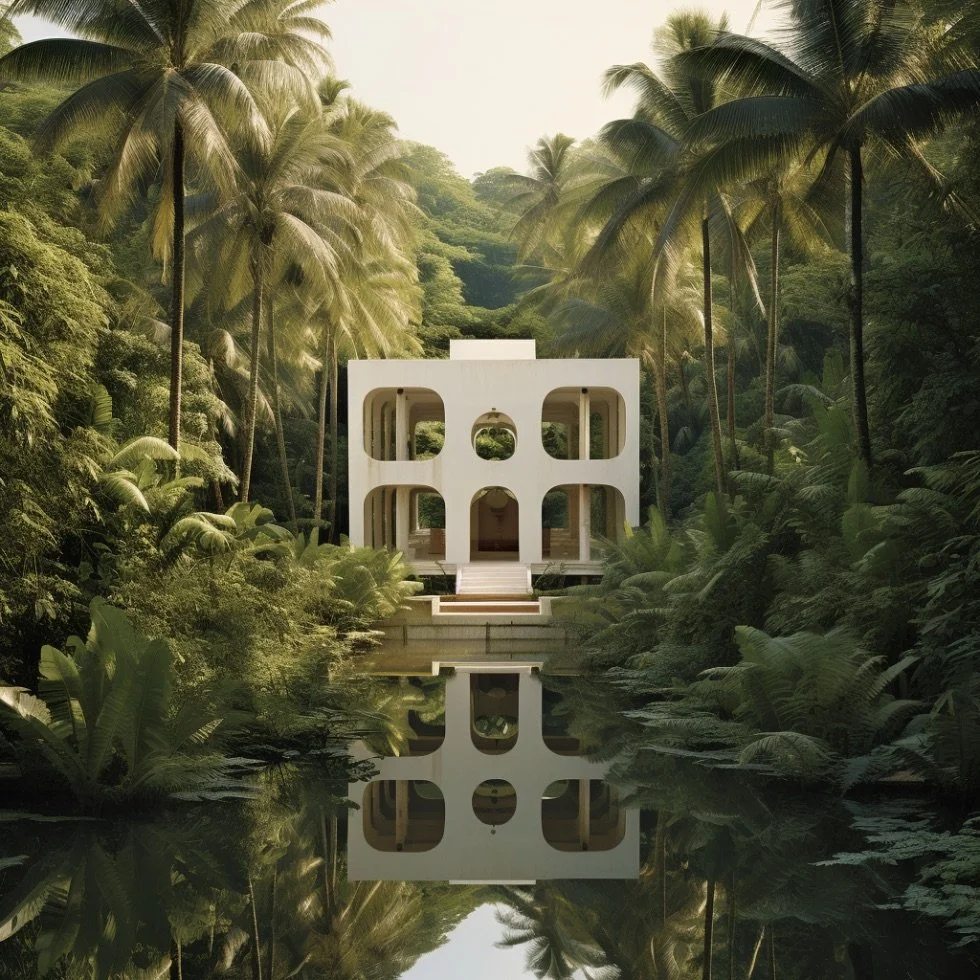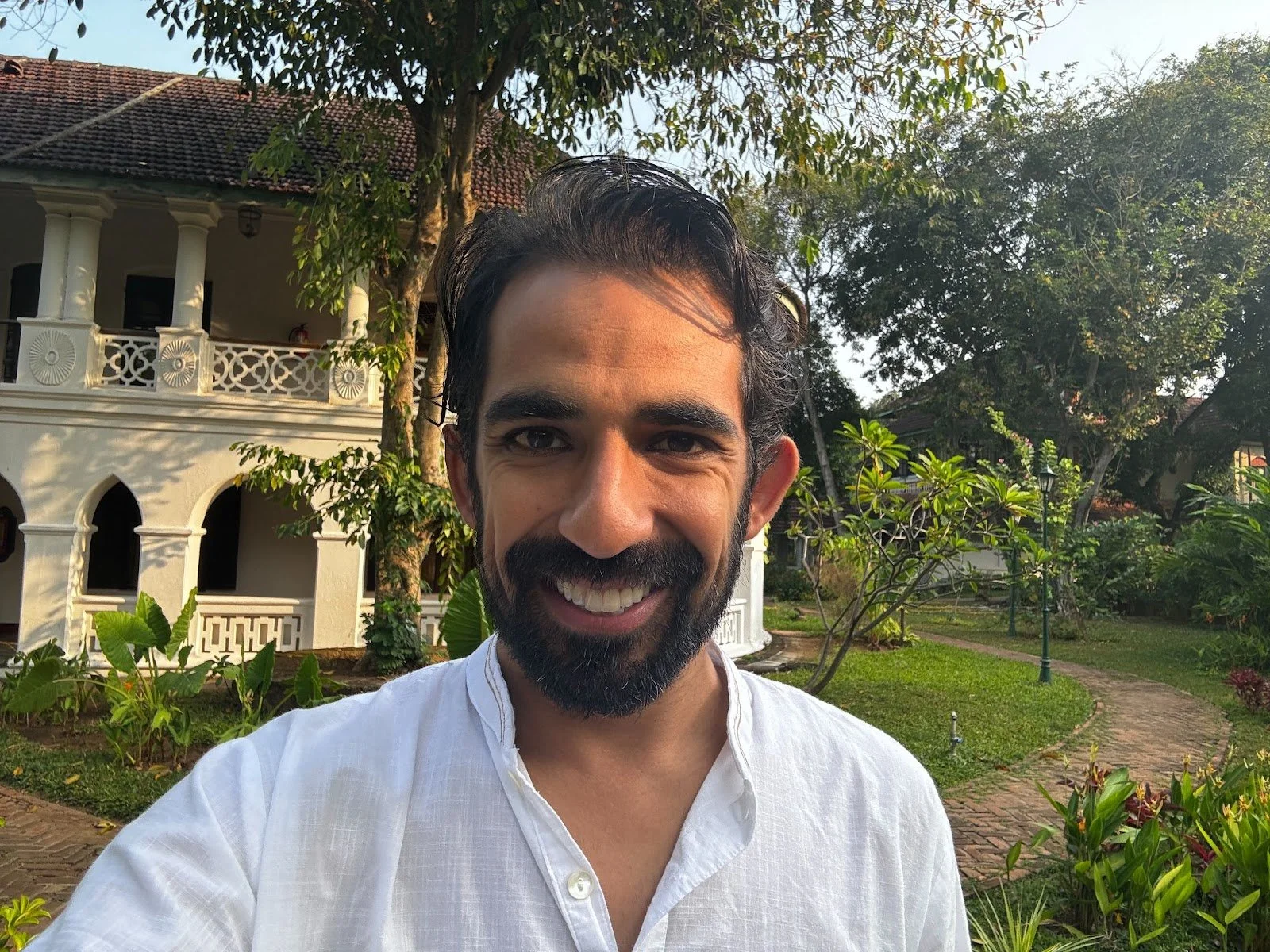How to Ayurveda
I had been feeling called to go yet they had no availability. Every few days, I sent them an email asking if anyone had canceled, and if a spot opened up, to let me know. They kindly acknowledged my email each time, and went on to remind me that people pay deposits months and years in advance, and rarely cancel their bookings.
Despite this, I continued to feel deep inside an urge to go. And soon.
Then all of a sudden, the faithful email arrived. A spot had just opened up, due to an unexpected cancellation. I responded yes immediately, and said to myself I’ll figure out the logistics later.
I was sitting in an apartment hotel in Sydney, Australia, when I had already been researching Ayurvedic health retreats in India. During my yoga teacher training, which I did five years ago in New York City of all places, we had an entire weekend on Ayurveda. I was immediately fascinated by it.
Ayurveda, often referred to as the "Science of Life," is an ancient Indian holistic approach to health and wellness that dates back over 5,000 years, making it one of the world's oldest medical systems.
The wisdom of Ayurveda was initially passed down through oral tradition, with sages conveying the principles and practices to their disciples. The knowledge was eventually compiled and recorded in the Vedas, the ancient sacred texts of India. Ayurveda's foundational texts were written between 1500 BCE and 500 AD. Ayurveda’s influence is not confined to India; it has also shaped the development of other traditional forms of medicine, such as Traditional Chinese Medicine.
Ayurveda is based on the premise that the universe is composed of five basic elements: space, air, fire, water, and earth. These elements combine to form the three doshas, or life forces, within the human body: Vata (space and air), Pitta (fire and water), and Kapha (water and earth). Not dosa, the South Indian version of a crepe, but dosha. Ayurveda suggests that health and wellness depend on a delicate balance between these doshas, and imbalance leads to disease.
To be in balance in Ayurveda is not to have an equal amount of all three doshas (Vata, Pitta and Kapha). It is rather to be in alignment with one’s original birth constitution– we are each born with one or two dominant doshas. Ayurveda is personalized medicine. It recognizes that each of us are unique and what my body needs may be different from what your body needs. I love the philosophy.
Even more fascinating is that the method of diagnosis involves reading a person’s pulse, looking at the color of their eyes, the state of their skin and their tongue. There’s no fancy equipment or modern technology required. I’ve spent thousands of dollars on medical testing in the past year alone. 5,000 years ago, they had simpler ways of diagnosing patients. I’ve visited a handful of Ayurvedic doctors in the past five years and am amazed every time at how accurately they are able to diagnose whatever I’ve got going on at that time– physically and mentally, by looking at my eyes, tongue, pulse and skin.
Within Ayurveda, there is a detox protocol called Panchakarma. I was made aware of it by a German friend, Martin, 54 years old but would look like he’s 34 except for his head full of white hair. Martin and I were on a shamanic retreat together in the South of Portugal a year and a half ago. Over lunch one day, he was sharing with me about Panchakarma and how he and his wife go each year in India. I was intrigued.
Fast forward to a few weeks ago, something inside me said ‘this is the time for me to do this’. In the past year, I’ve prioritized my physical health and have noticed positive results. Feeling energized, I have been craving something more intensive and immersive. I’ve done countless meditation and yoga retreats over the years. I needed something different.
Kerala is a Southern state in India, with the best air quality and known as quite spiritual. The cuisine, language, dress, culture, religion and customs are different from the North, where my family is originally from and where I have visited often.
Kerala is the birthplace of Ayurveda. My friend Martin had recommended an ayurvedic hospital that he really likes. His word was good enough for me to go by and this specific hospital is who I continued to email every few days, looking for an opening.
Once the spot was confirmed, I booked my flight from Sydney to Kerala.
I would go on to spend 17 days in an Ayurveda hospital, doing the Panchakarma treatment which involved a thorough detox and cleanse– physical, mental, emotional and spiritual.
It was an intense experience– and one that I will likely do again in the coming years. Coming out of it, I feel a mental clarity, a physical lightness, an emotional ease and a deeper spiritual connection. It’s only been a few days, however it feels like I continue to notice new gifts each day from the experience.
During my time there, I drafted my next book, inspired by my experience. If you are interested in learning more, email me and I’ll happily share with you an early look.





